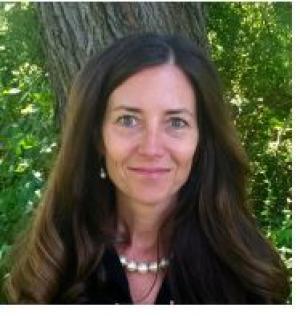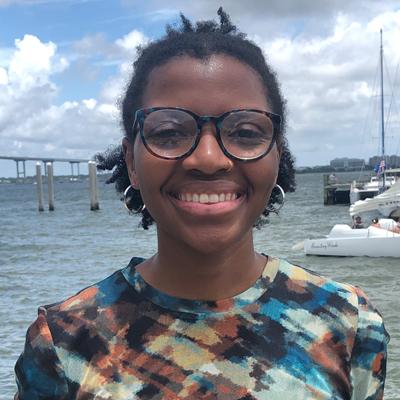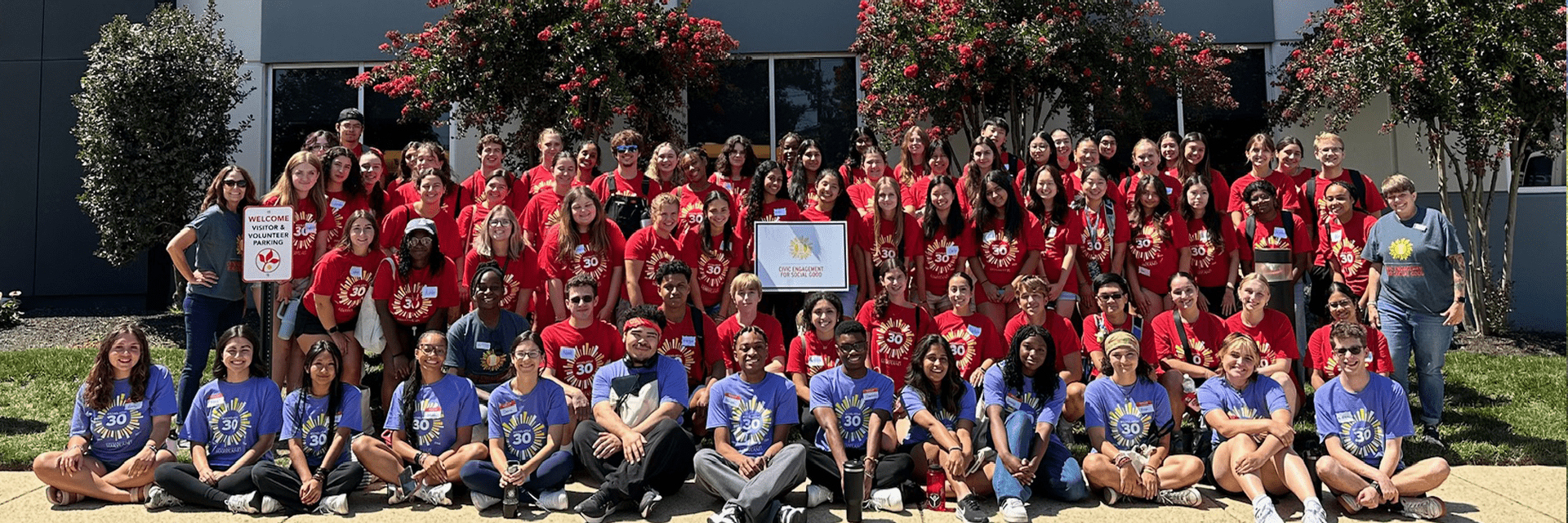Civic Engagement for Social Good
Inspiring community collaboration and meaningful change
Introduction
The world needs people committed to understanding social issues and collaborating alongside their communities to create meaningful change. In Civic Engagement for Social Good (CESG), previously known as CIVICUS, students work with organizations addressing a range of societal challenges, including poverty, food and housing insecurity, child welfare, education, political activism, animal rights, and the environment. In CESG, students explore:
- Issues impacting local communities;
- Organizations addressing pressing social issues;
- Ways to engage in hands-on work in civic engagement;
- Strategies for deliberative dialogue; and
- Methods to leverage their academic and career interests to make sustainable change.
CESG coursework and community engagement activities operate in tandem. Coursework helps students to understand the root causes of issues and strategies for addressing social concerns, while service projects, civic engagement work, and co-curricular activities create opportunities for students to complete hands-on work with communities while earning course credits.
As an interdisciplinary program, Civic Engagement for Social Good encourages students to ground their work in their passions, academic majors, and professional interests. Our students represent all thirteen colleges, with majors ranging from engineering and biology to business and education.
Through their shared passion for creating social good and engagement in co-curricular activities, CESG students form a close cohort who develop strong friendships and support each other throughout their time at UMD.
Colloquium and Lecture Topics
- The complexities and structures that cause social issues
- Theories and practices of civic engagement
- Models for working toward positive social change
- Ways to engage in difficult conversations with empathy
[This program] has made me a kinder, more compassionate, more informed person. [It] gave me the opportunity to get my hands dirty, to engage in the community in ways I never thought I could. [It] has taught me that it takes a village but also that I can make tremendous change myself..providing me with more opportunities for learning and character-building than I would've gotten in any other program or club.
Other Learning Opportunities
Students are actively engaged in UMD, College Park, and the broader Washington D.C. community. Annually, cohorts of CESG students have completed over 1,500 hours of volunteer work. Students can choose from over 100 projects per year with a wide array of partner organizations.
Students:
- Participate in civic engagement projects. For example, students have acted as mentors for local elementary students, planted trees to increase the canopy in Washington, D.C., provided support to patients in medical facilities, served meals from a mobile soup kitchen, handled dogs at rescue adoption events, canvassed on behalf of political candidates, and captioned videos to ensure accessibility for a wider community.
- Take trips to Washington, D.C. and the surrounding area to participate in scavenger hunts, visit memorials, monuments, and museums, dine in historic restaurants, and attend baseball games, cultural heritage events, and the performing arts.
- Meet guest speakers, including politicians, staff members from local non-profit organizations, and community leaders and activists.
- Travel out of town to places like New York and Philadelphia to learn about civic engagement work in other cities.
- Participate in community-building activities, such as challenge courses, trivia, game nights, and study breaks.
Second-year students participate in a capstone experience for academic credit consisting of either an internship, extensive service work, research, or affiliated experiential learning courses. Students have held internships in places like local and national politics, non-profits, high-profile media outlets, medical facilities, research labs, mentoring organizations, and peer dialogue training. Examples of past internships include: Capitol Hill, the Center for Early Childhood, the Department of Health and Human Services, the Maryland General Assembly, the National Institutes of Health, Pregnancy Aid Center, UMD Athletics, A Wider Circle, the White House, and many more. The capstone gives students authentic experiences and skills that help support their academic work, career goals, and future community engagement efforts.
Curriculum Overview
Over the two-year program (four semesters), students complete the 13 credit hours required for their CESG Scholars citation and many fulfill General Education requirements. The following table represents a typical two-year curriculum. Details about courses and requirements can be found on the CESG Citation Checklist.
| SEMESTER | COURSE | CREDITS |
|---|---|---|
| Semester 1 | CPCV 100: Colloquium I | 1 credit |
| CPCV 225: Intro to Civic Engagement for Social Good | 3 credits | |
| Semester 2 | CPCV 101: Colloquium II | 1 credit |
| Semester 3 | CHSE 228C: Intergroup Dialogue (DVCC) | 1 credit |
| CPCV 200: Colloquium III | 1 credit | |
| Semester 4 | CPCV 230: Internship; or CPCV 240: Service-Learning; or CPCV 250: Research; or |
3 credits 3 credits 3 credits |
| Semester 1, 2, 3, or 4 | Supporting Course (var. Gen Ed) | 3 credits |
Sponsoring College
Office Address
1103 Centerville Hall
Office Email
Faculty


News and Notes, Etc.
Civic Engagement for Social Good News
Busboys and Poets Owner Contends Food Can Bring People Together During Migration Theme Event
College Park Scholars kicked off the spring semester with a February dialogue event for students to share their own personal stories around our annual theme, “Migrations.” Many of the participants, as first- or second-generation Americans, spoke of their connections to their parents’ or grandparents’ cultures through food. They also referenced the emotional impacts their families’ respective migration stories had on their own lives.
On March 5, 2019, Scholars hosted our marquee theme event, “MIGRATIONS: Conversations on food, art and cultural fusion.” The Do Good Dialogue was presented in conjunction with The Clarice Smith Performing Arts Center and the Year of Immigration.
Busboys and Poets Owner Contends Food Can Bring People Together During Migration Theme Event
College Park Scholars kicked off the spring semester with a February dialogue event for students to share their own personal stories around our annual theme, “Migrations.” Many of the participants, as first- or second-generation Americans, spoke of their connections to their parents’ or grandparents’ cultures through food. They also referenced the emotional impacts their families’ respective migration stories had on their own lives. On March 5, 2019, Scholars hosted our marquee theme event, “MIGRATIONS: Conversations on food, art and cultural fusion.” The Do Good Dialogue was presented in conjunction with The Clarice Smith Performing Arts Center and the Year of Immigration.
Busboys and Poets Owner Contends Food Can Bring People Together During Migration Theme Event
College Park Scholars kicked off the spring semester with a February dialogue event for students to share their own personal stories around our annual theme, “Migrations.” Many of the participants, as first- or second-generation Americans, spoke of their connections to their parents’ or grandparents’ cultures through food. They also referenced the emotional impacts their families’ respective migration stories had on their own lives. On March 5, 2019, Scholars hosted our marquee theme event, “MIGRATIONS: Conversations on food, art and cultural fusion.” The Do Good Dialogue was presented in conjunction with The Clarice Smith Performing Arts Center and the Year of Immigration.
Tubman Byway Excursion Prompts New Lessons in Maryland Migration History
“You’re going to Meredith Farm after this?” asked our tour guide, Matt Meredith, as I stood in the cramped interior of the Bucktown Village Store with 16 first- and second-year Scholars.
“It’s on the Byway list,” I explained.
“That was my family’s farm. There’s nothing there anymore,” Matt said.
Tubman Byway Excursion Prompts New Lessons in Maryland Migration History
“You’re going to Meredith Farm after this?” asked our tour guide, Matt Meredith, as I stood in the cramped interior of the Bucktown Village Store with 16 first- and second-year Scholars. “It’s on the Byway list,” I explained. “That was my family’s farm. There’s nothing there anymore,” Matt said.
Tubman Byway Excursion Prompts New Lessons in Maryland Migration History
“You’re going to Meredith Farm after this?” asked our tour guide, Matt Meredith, as I stood in the cramped interior of the Bucktown Village Store with 16 first- and second-year Scholars. “It’s on the Byway list,” I explained. “That was my family’s farm. There’s nothing there anymore,” Matt said.
11 Things We Learned by Going Viral
College Park Scholars has been coordinating an annual theme for each of the past few years. It’s a chance for students across our community to come together to engage in a shared intellectual experience. Whether it’s trash—our theme from the 2015–2016 academic year—power or something else, we take on a complex, multifaceted problem, work to understand its causes and impacts, and discuss how we might address it with thoughtfulness and creativity. The annual theme and related programming afford us the opportunity to realize on a grand scale an idea that shapes everything we do in Scholars: We learn better when we learn together.
11 Things We Learned by Going Viral
College Park Scholars has been coordinating an annual theme for each of the past few years. It’s a chance for students across our community to come together to engage in a shared intellectual experience. Whether it’s trash—our theme from the 2015–2016 academic year—power or something else, we take on a complex, multifaceted problem, work to understand its causes and impacts, and discuss how we might address it with thoughtfulness and creativity. The annual theme and related programming afford us the opportunity to realize on a grand scale an idea that shapes everything we do in Scholars: We learn better when we learn together.
11 Things We Learned by Going Viral
College Park Scholars has been coordinating an annual theme for each of the past few years. It’s a chance for students across our community to come together to engage in a shared intellectual experience. Whether it’s trash—our theme from the 2015–2016 academic year—power or something else, we take on a complex, multifaceted problem, work to understand its causes and impacts, and discuss how we might address it with thoughtfulness and creativity. The annual theme and related programming afford us the opportunity to realize on a grand scale an idea that shapes everything we do in Scholars: We learn better when we learn together.
In Memoriam: Marybeth Drechsler Sharp
College Park Scholars is grieving over the loss of Marybeth Drechsler Sharp, who died June 5, 2018, after an 18-month battle with breast cancer. She was a longtime graduate assistant on the Scholars central staff who made contributions to the program both professionally and personally.
“If a College Park Scholar is supposed to connect the heart of a strong community with the intellect of academic inquiry, Marybeth showed us what a Scholar could be,” says Scholars Associate Director Dave Eubanks, who worked with Drechsler Sharp. “That was clear to me from my first weeks with Scholars and has been a foundational part of how I have thought about our programs ever since.”
In Memoriam: Marybeth Drechsler Sharp
College Park Scholars is grieving over the loss of Marybeth Drechsler Sharp, who died June 5, 2018, after an 18-month battle with breast cancer. She was a longtime graduate assistant on the Scholars central staff who made contributions to the program both professionally and personally. “If a College Park Scholar is supposed to connect the heart of a strong community with the intellect of academic inquiry, Marybeth showed us what a Scholar could be,” says Scholars Associate Director Dave Eubanks, who worked with Drechsler Sharp. “That was clear to me from my first weeks with Scholars and has been a foundational part of how I have thought about our programs ever since.”
In Memoriam: Marybeth Drechsler Sharp
College Park Scholars is grieving over the loss of Marybeth Drechsler Sharp, who died June 5, 2018, after an 18-month battle with breast cancer. She was a longtime graduate assistant on the Scholars central staff who made contributions to the program both professionally and personally. “If a College Park Scholar is supposed to connect the heart of a strong community with the intellect of academic inquiry, Marybeth showed us what a Scholar could be,” says Scholars Associate Director Dave Eubanks, who worked with Drechsler Sharp. “That was clear to me from my first weeks with Scholars and has been a foundational part of how I have thought about our programs ever since.”
College Park Scholars Mourns Ira Berlin
College Park Scholars mourns Ira Berlin, who died June 5, 2018, in Washington. Berlin was a celebrated historian and scholar on slavery who, as dean for undergraduate studies at the University of Maryland, helped found College Park Scholars in 1993. The intent was to combine the best of academic and student affairs into a singular living–learning program for high-achieving students.
College Park Scholars Mourns Ira Berlin
College Park Scholars mourns Ira Berlin, who died June 5, 2018, in Washington. Berlin was a celebrated historian and scholar on slavery who, as dean for undergraduate studies at the University of Maryland, helped found College Park Scholars in 1993. The intent was to combine the best of academic and student affairs into a singular living–learning program for high-achieving students.
College Park Scholars Mourns Ira Berlin
College Park Scholars mourns Ira Berlin, who died June 5, 2018, in Washington. Berlin was a celebrated historian and scholar on slavery who, as dean for undergraduate studies at the University of Maryland, helped found College Park Scholars in 1993. The intent was to combine the best of academic and student affairs into a singular living–learning program for high-achieving students.
Scholars Executive Director Offers Leadership Lessons at Omicron Delta Kappa Ceremony
Last month, College Park Scholars Executive Director Marilee Lindemann was inducted into the Sigma Circle of ODK. She was asked to speak on her leadership philosophy at the induction ceremony. The following is an edited version of her remarks:
Scholars Executive Director Offers Leadership Lessons at Omicron Delta Kappa Ceremony
Last month, College Park Scholars Executive Director Marilee Lindemann was inducted into the Sigma Circle of ODK. She was asked to speak on her leadership philosophy at the induction ceremony. The following is an edited version of her remarks:
Scholars Executive Director Offers Leadership Lessons at Omicron Delta Kappa Ceremony
Last month, College Park Scholars Executive Director Marilee Lindemann was inducted into the Sigma Circle of ODK. She was asked to speak on her leadership philosophy at the induction ceremony. The following is an edited version of her remarks:


